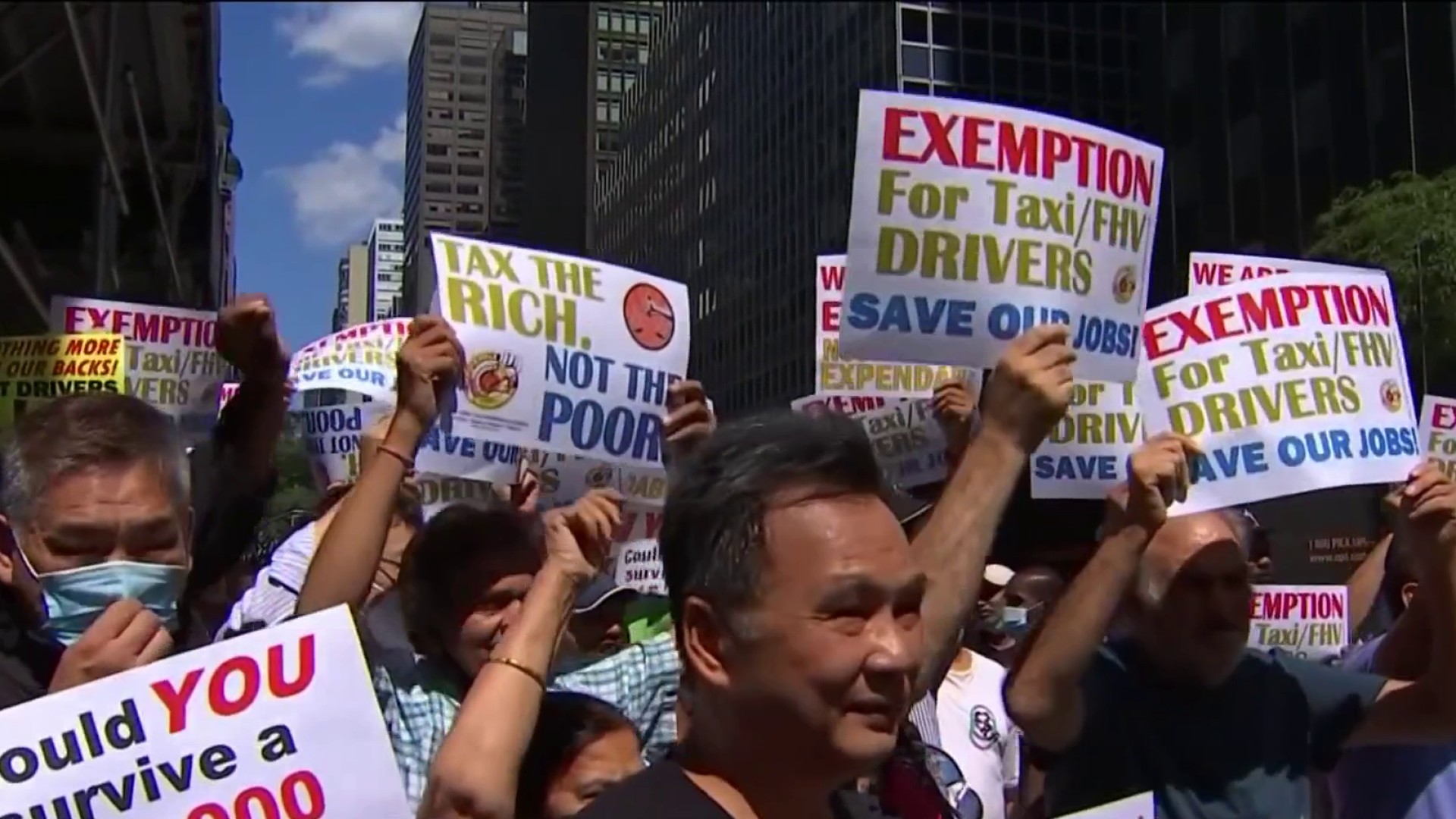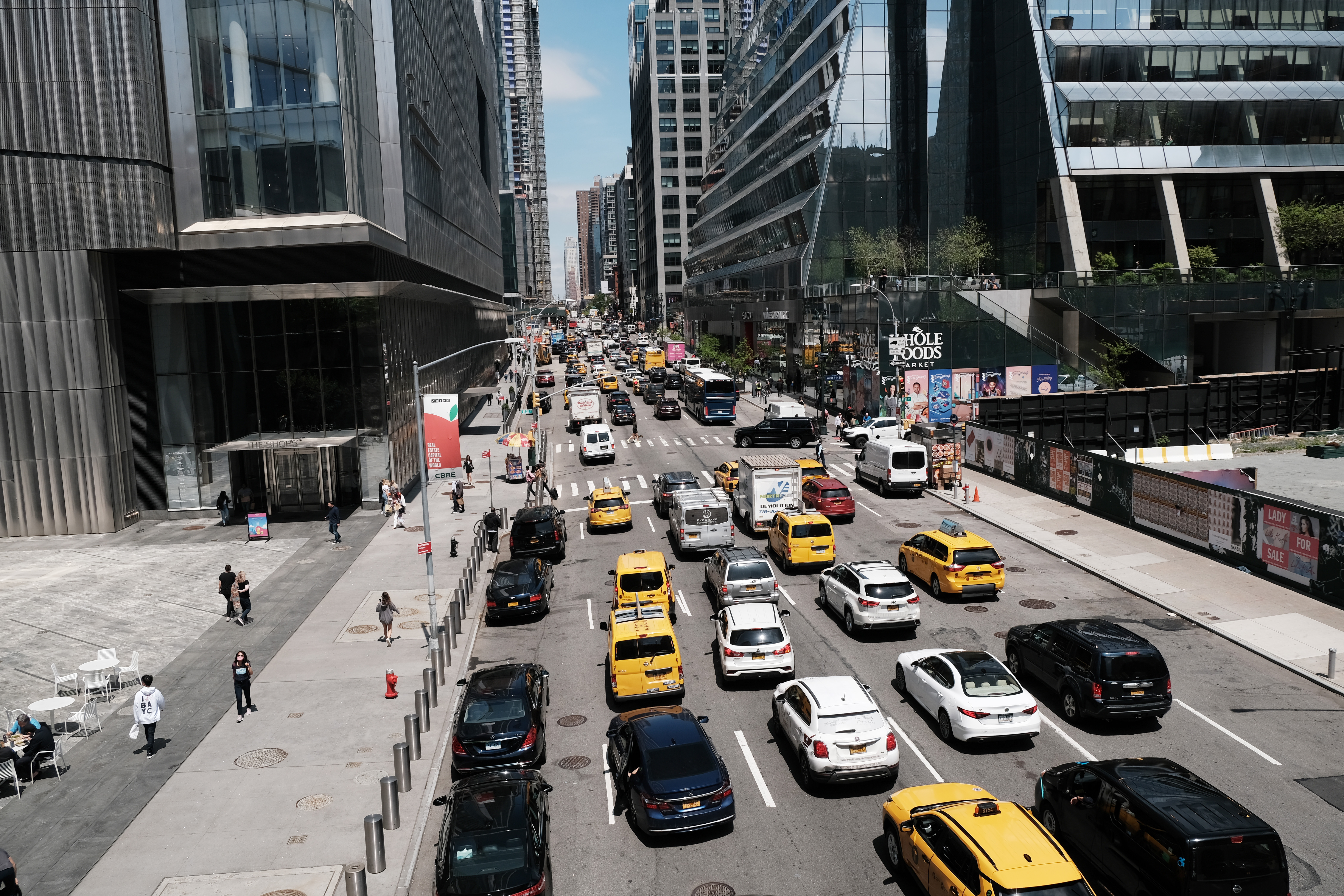Nearly 400 people signed up and sounded off at the first public hearing on the Metropolitan Transportation Authority's controversial proposed congestion pricing plan for Manhattan.
The virtual meeting lasted well into late Thursday night, with both passionate supporters and fierce opponents lined up (figuratively) to speak their mind about the issue.
"I live in the congestion zone and honestly we’re drowning here in the congestion zone. So many people are driving in," said Barak Friedman, who supports the plan.
Get Tri-state area news and weather forecasts to your inbox. Sign up for NBC New York newsletters.
There is no denying the gridlock in Manhattan is miserable, even on its best days. The MTA says drivers typically clock in at 7 MPH. In order to speed things up, supporters say the island's central business district needs fewer cars on the road.
"Not only will it make our streets safer and air cleaner, in those situations when you need to use a car, you will be able to get through our roadways," said Assemblyman Robert Carroll, who represents part of Brooklyn.
Congestion pricing could generate around $15 billion in revenue, the MTA has said. Officials say the cash would go to modernizing the subway system and improving the bus fleet.
"Congestion pricing has worked around the world and now we have data showing it will work here,” said Manhattan Borough President Mark Levine. "We have to deal with the choking level of congestion on our streets."
Some who support the idea think that it needs to be spread to incorporate every part of the city.
"It’s not fair to New Yorkers. Congestion pricing is only to be applied in Manhattan central business district. In fact, it should be applied to everyone of the five boroughs," said supporter Evan Ferrer.
Anyone who drives south of 60th street would have to pay the toll, aside from those who stay on the FDR Highway, Westside Highway or Hugh L. Carey Tunnel. The proposal is to charge $9 to $23 at peak times, $7 to $17 during off-peak times, and at least $5 even at overnight hours.
Not everyone would have to pay the congestion pricing fee, but it's not yet clear who falls into that category of exemption.
But far from everyone is sold on the idea.
"How will this affect goods that people do need to purchase and brought in through trucks? How will this affect the cost of services fixing something like a dishwasher or refrigerator?" asked opponent Christopher Amplo.
Lee Berman, a district leader from the Lower East Side, brought up the issue of transit safety — a big concern for many who oppose the idea, saying the steep price will leave many with no other choice.
"You’re gonna tax Jews who drive from Brooklyn to buy Kosher food, and Chinatown residents who drive to Sunset Park and other Chinatowns to shop for their families because they don’t want to risk being victims of hate crimes on the subway," Berman said.
Some protested outside Grand Central ahead of the Thursday night hearing, and cab drivers have previously let their opposition be known — by protesting outside of New York Gov. Kathy Hochul's midtown office.
There will be five other hearings planned through the end of August. After the public hearings, the next step is approval from the Federal Highway Administration by the end of 2022. If and when that happens, the congestion pricing clock starts ticking as to how much to charge and when it begins.



